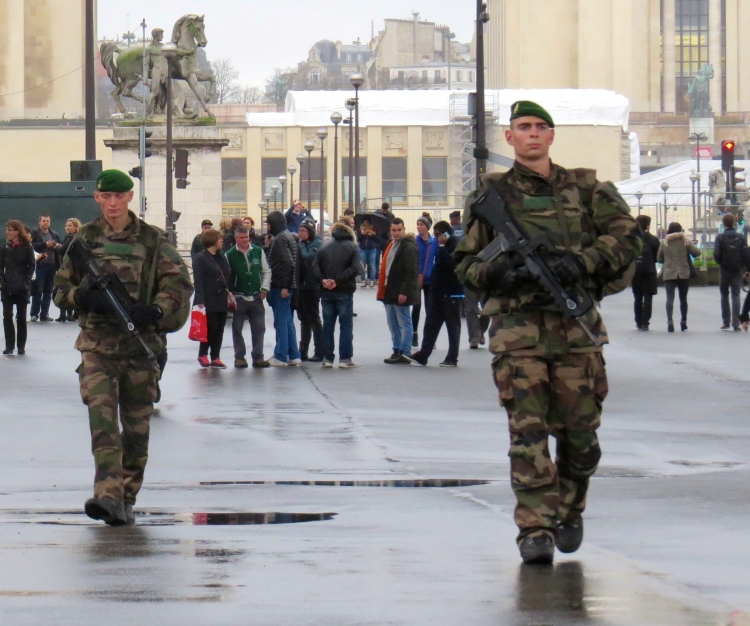State of Emergency

According to French law, the emergency powers enacted immediately following the November 13 attacks in Paris may only last for 12 days, unless extended by both houses of the parliament.
On Thursday, French MPs in the lower house voted overwhelmingly to extend the national state of emergency for an additional three months, but exactly what does this mean for those living in and visiting France?
First, the emergency powers allow the security services to act with considerably less judicial oversight, including the ability to carry out searches without warrants. Since the attacks, French authorities say police have conducted nearly 800 raids across the country. By Friday, police stated they have detained 90 people and seized 174 weapons, including 18 military-style firearms, 84 rifles, and 68 handguns.
The emergency powers also include the right to place individuals suspected of “inciting or participating in acts that are a threat to public order,” under house arrest.
The Magistrates Union declared in a statement released last week that the state of emergency “dangerously modifies the nature and extent of police and administrative powers.”
In response, French Prime Minister Manuel Valls stated, "This is the fast response of a democracy faced with barbarism. This is the effective legal response in the face of an ideology of chaos."Valls added the measures were "modern and effective tools to fight the terrorist threat".
In an Ifop survey conducted for Le Figaro and RTL, 84% of those polled said they would accept more controls and a certain limitation of their civil liberties to guarantee their security.
“There’s no way that the President could not effect a State-of-Emergency,” said Dr. Susan Perry, an International Law Professor at the American University of Paris. “It was a multi-sided attack, a blind attack. And in these situations the government must move rapidly to take control of the situation."
French CRS police in St. Denis. Image Credit: Ryan BlumFor the average citizen the state-of-emergency will result in a visibly more present security force. Armed soldiers and police will patrol population-dense areas such as tourist attractions, transportations hubs, and shopping centers.
Local state representatives, the prefets, also will have extra power to impose curfews and provisionally close concert venues, bars, and meeting halls. Lyon, France’s second largest city, has already cancelled the Festival of Light, a four-day event in early December that attracts more than three million people.
Residents and tourists should also expect France to increase security on its borders. This may include identity checks, which will likely increase waiting times for check-in flyers and lines at customs. Other EU countries have also followed suit. These checks will be especially strict on the borders outside the Schengen free-travel zone.
Despite the trauma of the attacks, Paris has steadily been returning back to normal. Less than a week after and people are once again attending theatres, going to the cinema, and enjoying themselves in restaurants and café terraces to the tune of social media campaigns such as #TousAuBistro and #JeSuisEnTerrase.
“We Parisians are tough, you know?” said André Mercier Thursday night. “We’ve survived plagues, wars, revolutions, and terrorism before. So, of course we’ll survive this.”
Mercier, a 52-year-old resident of the 11th arrondisement, was enjoying dinner on the terrace of À la Folie, a restaurant situated less than 200 meters from the Bataclan Concert Hall, the site of the deadliest attack.
He paused, and then continued. “We know life is too short to always occupy ourselves with sadness and fear. We love life, it’s what we French call la joie de vivre, no one can ever take that away from us.”







